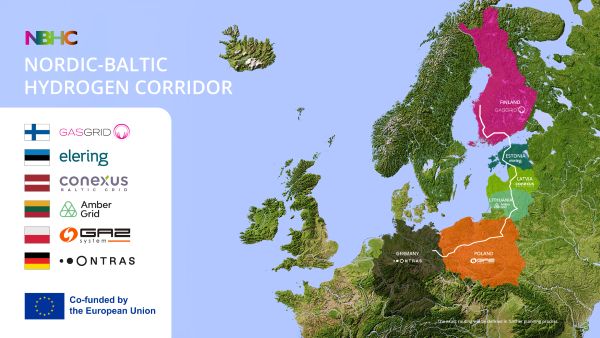Nordic Baltic Hydrogen Corridor Initiative Receives EU Grant for Sustainable Energy Future
Key Ideas
- Seven promoters including Gasgrid Vetyverkot Oy and GAZ-SYSTEM signed a grant agreement on July 1, 2025, securing €6.8 million from the EU for the Nordic Baltic Hydrogen Corridor project.
- The initiative aims to develop clean hydrogen markets and establish a large-scale hydrogen pipeline network in the Baltic Sea region, contributing to Europe's hydrogen backbone vision.
- Amber Grid highlighted the project's significance in enhancing energy security, promoting a connected European market, and supporting clean energy production for decarbonisation.
- The feasibility study phase is expected to be completed by early 2027, with stakeholders from public and private sectors actively participating to address local needs and environmental standards.
The Nordic Baltic Hydrogen Corridor (NBHC) project, led by seven promoters from various countries, has received a grant agreement from the European Union (EU) to support its development. With a focus on fostering a sustainable energy future in the Baltic Sea region, the initiative aims to facilitate the growth of clean hydrogen markets and integrate them into Europe's energy landscape. The project will receive financial backing of €6.8 million to conduct feasibility studies addressing technical, economic, regulatory, and environmental aspects of establishing a large-scale hydrogen pipeline network. This effort aligns with the European hydrogen backbone vision, promoting renewable hydrogen transmission to enhance energy security and accelerate Europe's transition to a decarbonised economy.
Amber Grid, the Lithuanian gas transmission system operator, emphasized the importance of the project in enhancing energy security, building a connected European market, and supporting clean energy production for industry decarbonisation. The feasibility study phase is expected to conclude by early 2027, setting the stage for subsequent project development phases with a target commissioning date around 2033. Stakeholders from both public and private sectors will be actively involved in the process to ensure local needs, environmental standards, and strategic objectives are considered, highlighting a collaborative approach towards sustainable energy advancement.
Topics
Projects
Decarbonisation
Energy Infrastructure
Sustainable Energy
European Market
EU Grant
Baltic Sea Region
Latest News
